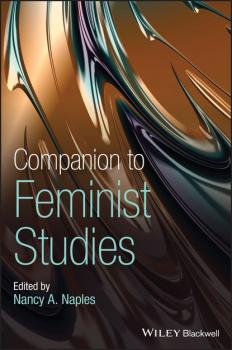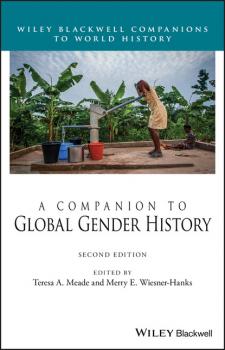Группа авторов
Список книг автора Группа авторовCompanion to Feminist Studies
A c omprehensive overview of feminist scholarship edited by an internationally recognized and leading figure in the field Companion to Feminist Studies provides a broad overview of the rich history and the multitude of approaches, theories, concepts, and debates central to this dynamic interdisciplinary field. Comprehensive yet accessible, this edited volume offers expert insights from contributors of diverse academic, national, and activist backgrounds—discussing contemporary research and themes while offering international, postcolonial, and intersectional perspectives on social, political, cultural, and economic institutions, social media, social justice movements, everyday discourse, and more. Organized around three different dimensions of Feminist Studies, the Companion begins by exploring ten theoretical frameworks, including feminist epistemologies examining Marxist and Socialist Feminism, the activism of radical feminists, the contributions of Black feminist thought, and interrelated approaches to the fluidity of gender and sexuality. The second section focuses on methodologies and analytical frameworks developed by feminist scholars, including empiricists, economists, ethnographers, cultural analysts, and historiographers. The volume concludes with detailed discussion of the many ways in which pedagogy, political ecology, social justice, globalization, and other areas within Feminist Studies are shaped by feminism in practice. A major contribution to scholarship on both the theoretical foundations and contemporary debates in the field, this volume: Provides an international and interdisciplinary range of the essays of high relevance to scholars, students, and practitioners alike Examines various historical and modern approaches to the analysis of gender and sexual differences Addresses timely issues such as the difference between radical and cultural feminism, the lack of women working as scientists in academia and other research positions, and how activism continues to reformulate feminist approaches Draws insight from the positionality of postcolonial, comparative and transnational feminists Explores how gender, class, and race intersect to shape women’s e
A Companion to Global Gender History
Provides a completely updated survey of the major issues in gender history from geographical, chronological, and topical perspectives This new edition examines the history of women over thousands of years, studies their interaction with men in a gendered world, and looks at the role of gender in shaping human behavior. It includes thematic essays that offer a broad foundation for key issues such as family, labor, sexuality, race, and material culture, followed by chronological and regional essays stretching from the earliest human societies to the contemporary period. The book offers readers a diverse selection of viewpoints from an authoritative team of international authors and reflects questions that have been explored in different cultural and historiographic traditions. Filled with contributions from both scholars and teachers, A Companion to Global Gender History, Second Edition makes difficult concepts understandable to all levels of students. It presents evidence for complex assertions regarding gender identity, and grapples with evolving notions of gender construction. In addition, each chapter includes suggestions for further reading in order to provide readers with the necessary tools to explore the topic further. Features newly updated and brand-new chapters filled with both thematic and chronological-geographic essays Discusses recent trends in gender history, including material culture, sexuality, transnational developments, science, and intersectionality Presents a diversity of viewpoints, with chapters by scholars from across the world A Companion to Global Gender History is an excellent book for upper-level undergraduate and graduate students involved in gender studies and history programs. It will also appeal to more advanced scholars seeking an introduction to the field.









